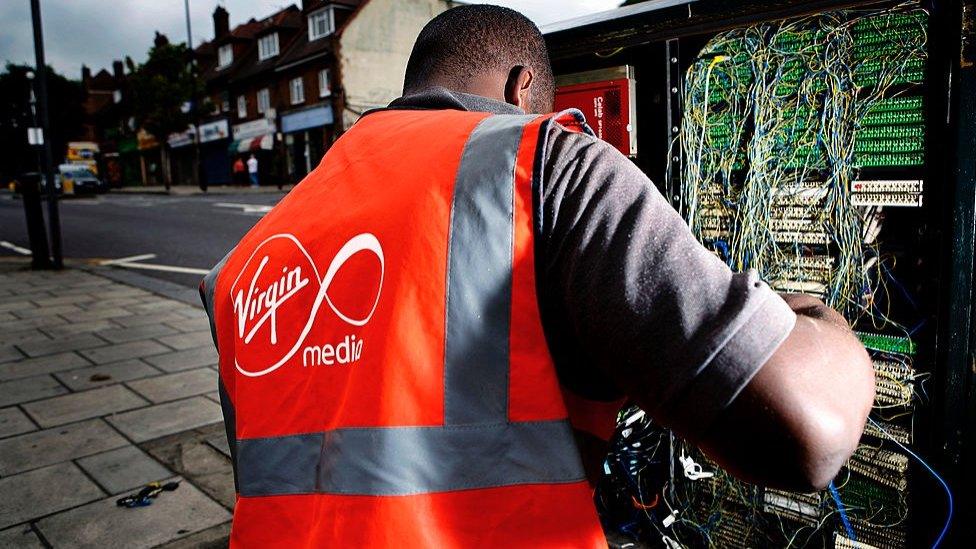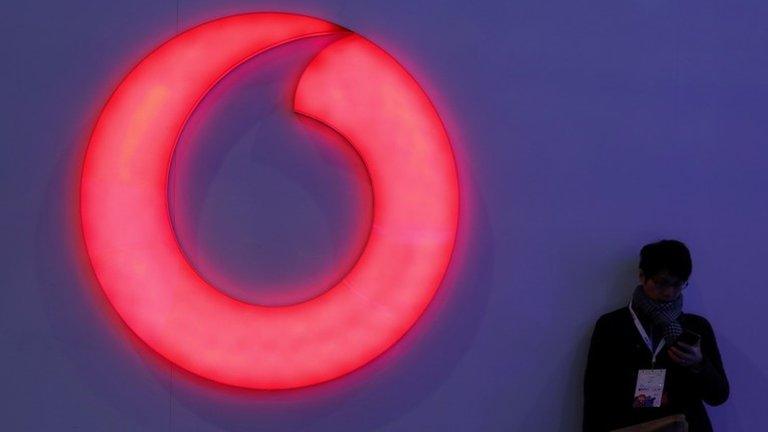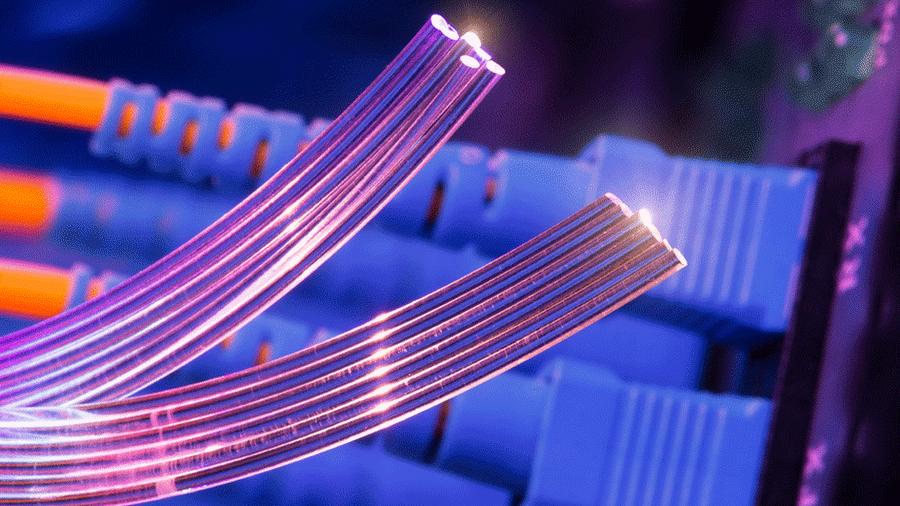Virgin Media pledges gigabit broadband to millions of homes
- Published
- comments

Virgin Media's cabinets are connected to local exchanges by optical fibre but link to most homes by copper-based cabling
Virgin Media has pledged to offer internet download speeds of at least 1Gbps to 15 million homes by the end of 2021.
That represents about half of all UK households - and double the fastest speed the company currently advertises.
But the company described the new prime minister's ambition to roll out full fibre-optic broadband, external to all homes by 2025 as "very stretching".
Virgin's plan still involves the use of a type of copper-based cable.
In most cases, these coaxial cables would still be used to make the so-called "last mile" connections between homes and street cabinets.
The promised speed boost is instead delivered by an upgrade to the Docsis (data over cable service interface specification) standard.
The new 3.1 specification theoretically allows downloads of up to 10Gbps.
However, going "full fibre" potentially allows even faster "terabit" speeds at some point in the future. And Boris Johnson has challenged the industry to deliver this solution.
"If we want to unite our country and our society, we should commit now to delivering full fibre to every home in the land not in the mid-2030s - but in five years at the outside," he wrote in the Daily Telegraph last month, external.
Tough target
At present, BT's Openreach division as well as smaller players including Hyperoptic, Gigaclear and Cityfibre are installing fibre to the premises (FTTP) networks.
Virgin Media itself is also trialling the technology in Cambridge, where it offers download speeds of over 8Gbps, and has also used it in parts of its normal residential network.
But on the whole, the UK has relatively few homes with FTTP, external compared with much of Europe. And many of the premises that do have it still cannot attain gigabit speeds, external.

Virgin Media is the UK's second largest broadband provider after BT
Virgin Media suggests its coaxial-based connections should count towards the prime minister's target.
But the company says further action is needed to make the 2025 deadline.
"The government needs to prioritise putting in place the right conditions to encourage and incentivise a faster buildout," the company's chief operating officer, Jeff Dodds, told BBC News.
"That means making it much easier to build and looking at how it can make the investment case much more favourable to build faster."
Last week, the Financial Times said Virgin Media's owner, Liberty Global, was developing a plan to create a new company to build full-fibre networks outside the urban areas it currently serves, external.
However, Mr Dodds declined to confirm the report.
"We do believe under the right conditions, there's an opportunity to accelerate the rate of build in the UK," he said.
"But there's no specific comment on the speculation that was in the press at the weekend."
Holographic sports
Virgin Media says a 1Gbps download would be 20 times faster than the average speed currently provided to UK homes.
On that basis, a 20GB 4K-resolution film would take less than three minutes to download, compared with nearly 52 minutes at present.
The company has also suggested the innovation could pave the way to next-generation technologies such as 8K-resolution video streams, "holographic-vision" sports broadcasts and virtual-reality shopping.
One company-watcher, however, suggested in the near-term users might be more appreciative of the fact the network should come under less strain at busy times.
"One of the challenges Virgin Media has had is the fact that at peak times the network hasn't really fulfilled and satisfied users' requirements," said Paolo Pescatore, from the consultancy PP Foresight.
"It's great to focus on speed. But I think that capacity is arguably the biggest benefit of this move to gigabit connectivity."
- Published17 April 2019

- Published13 February 2018
